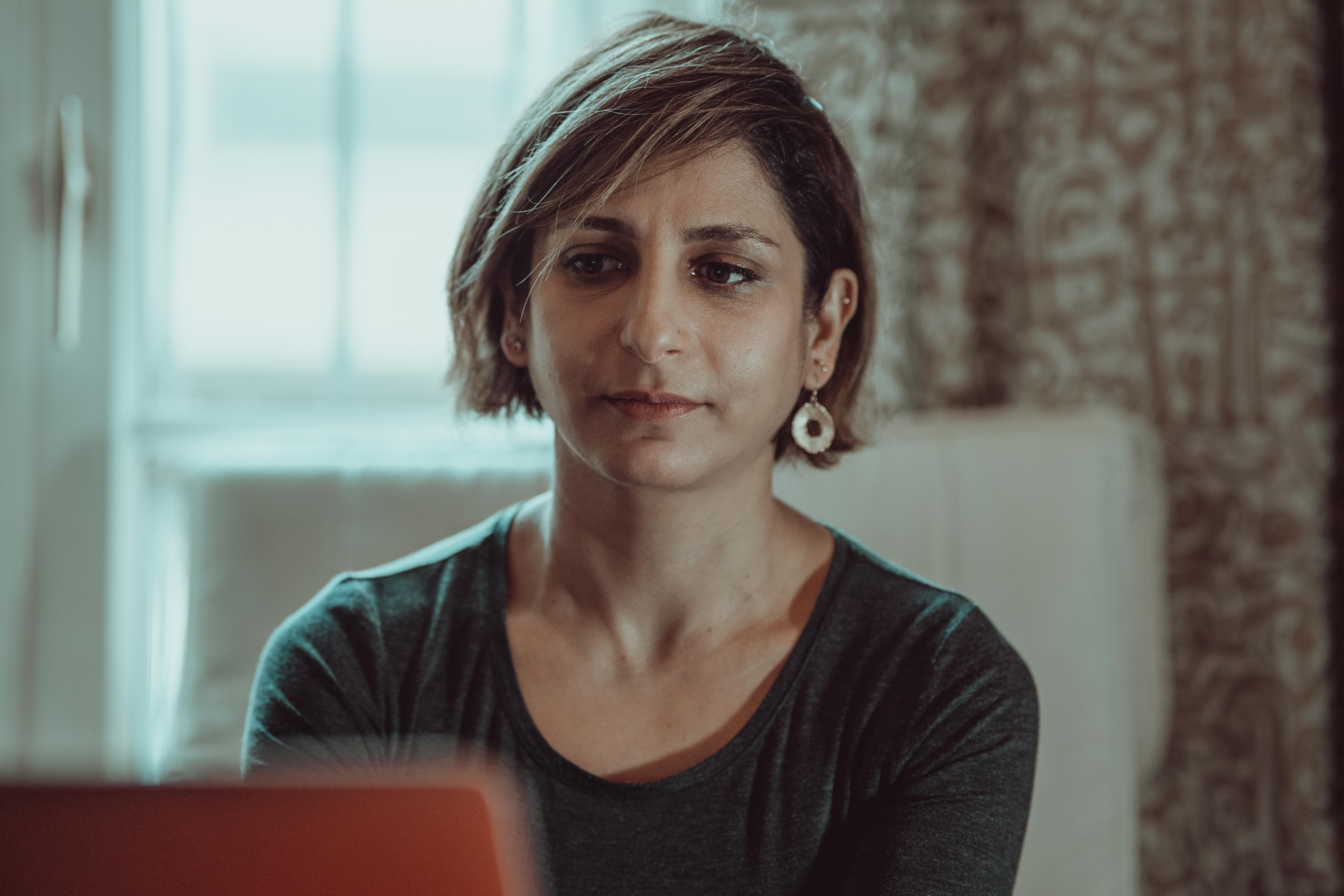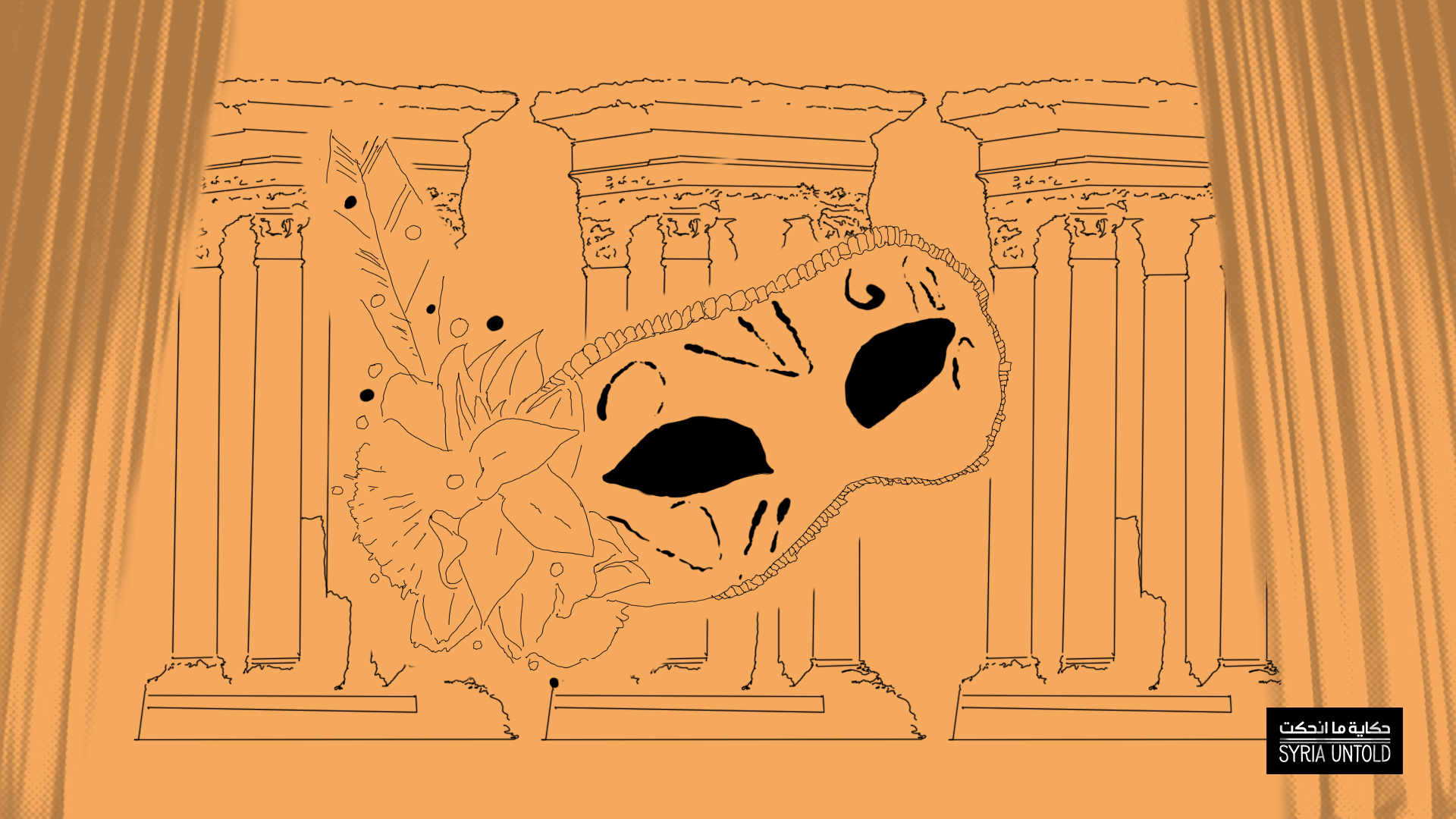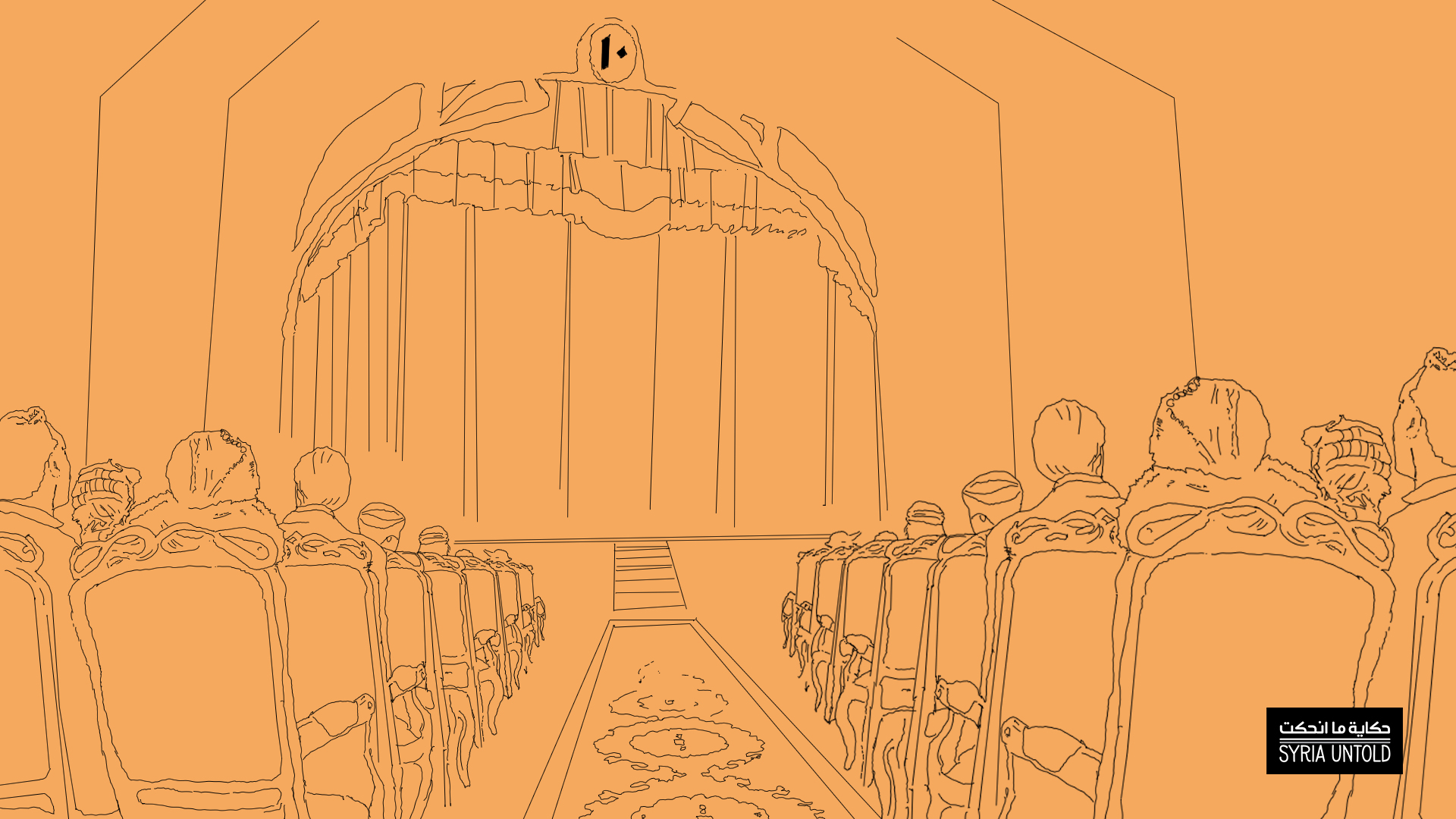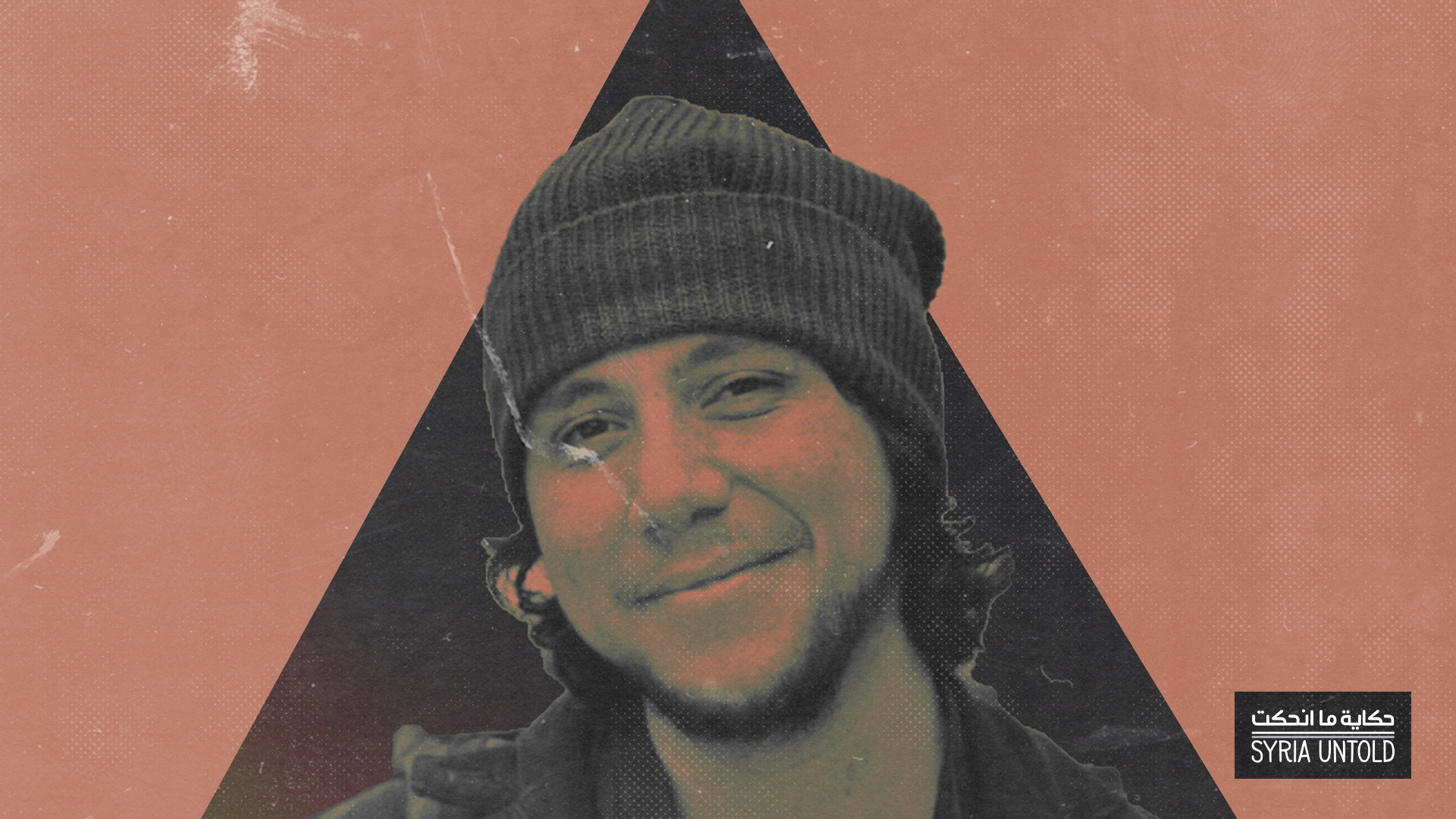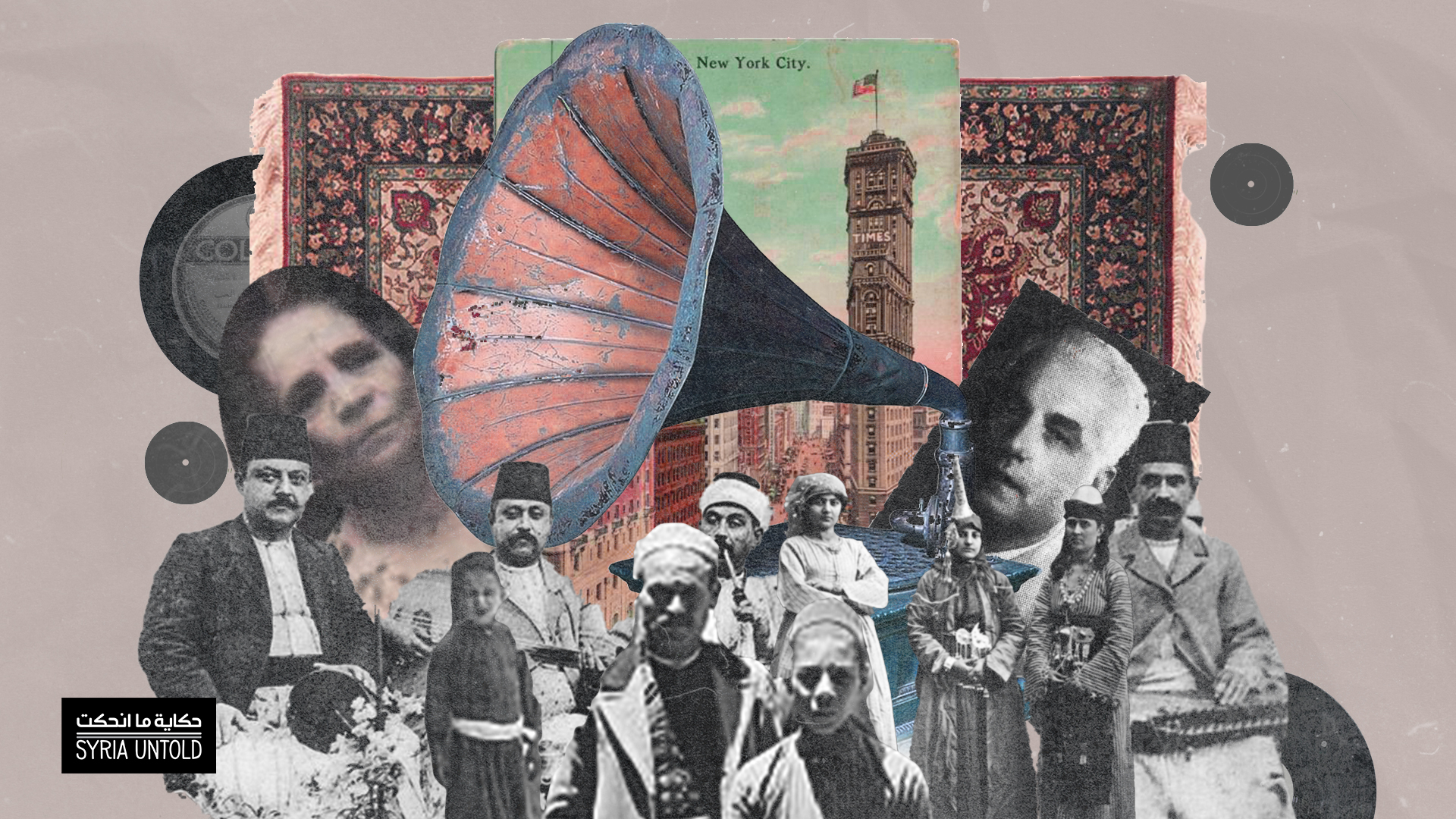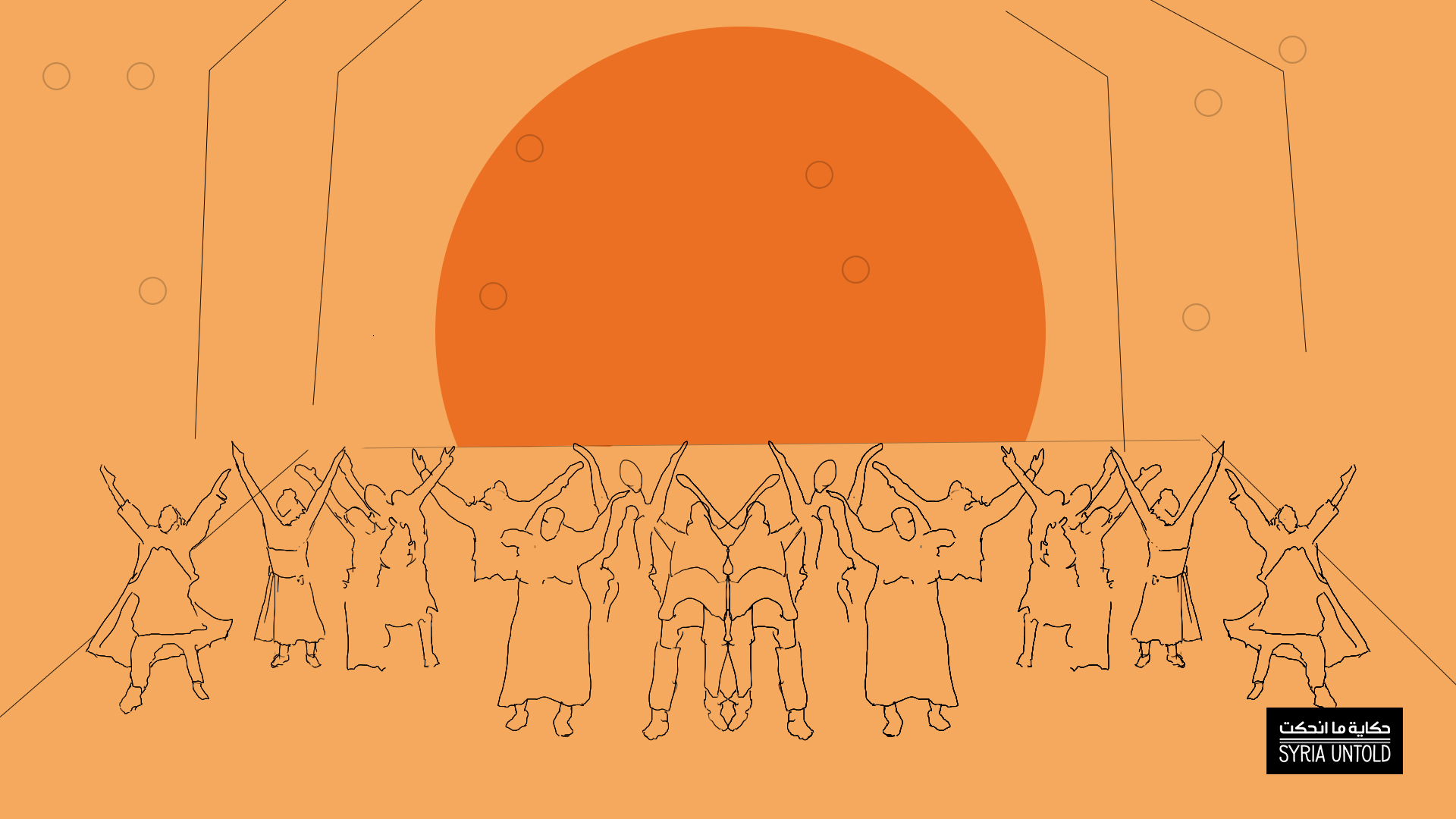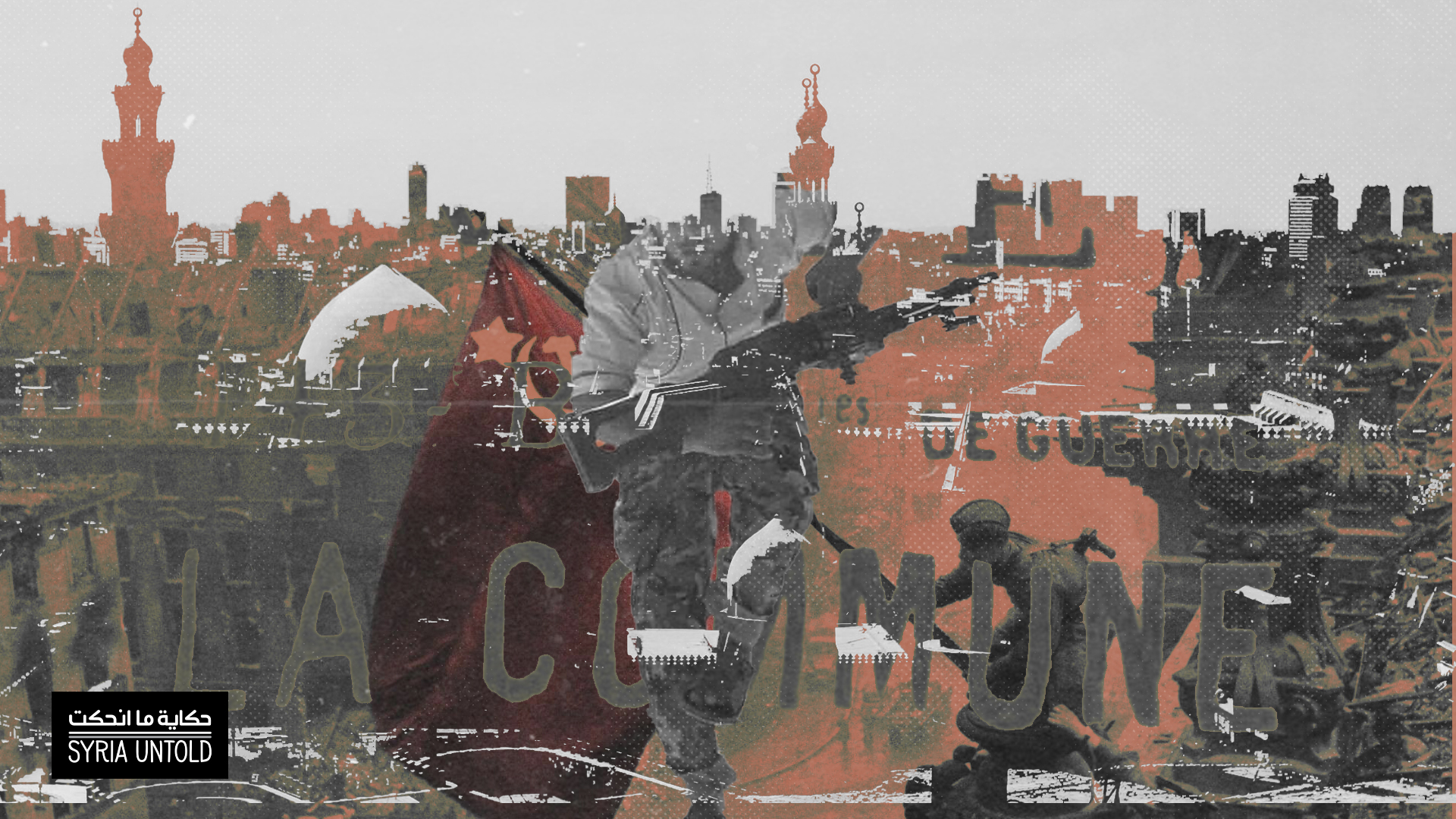This essay is part of SyriaUntold's series on Syrian theater. Read this piece in its original Arabic here.
Since the Syrian revolution broke out in 2011 and most professionals in the cultural field, including playwrights, moved abroad, I have been pondering two key questions. The first has to do with the changes that have affected the theatrical experience in the diaspora, and whether these changes have impacted form or content, or both. The second question is related to what is actually new in Syria’s emerging diaspora theatrical experience. I ask myself these questions as a worker in this field, as someone who specialized in scenography in France, gained experience in theatrical work in Syria during the six years that preceded the war and continued my professional career in Europe upon my return to France in 2012.
First, it is important to clarify that it is quite difficult to keep track of all Syrian theater since 2011, due to the diversity of texts, the multitude of shows and their wide reach in several countries around the world. I will, therefore, only share my personal insights and impressions, and lay out briefly my main experiences with Syrian theater practitioners, like director Omar Abou Saada, playwright Mohammed al-Attar al-Husseini and director Wael Ali.
A tough task
One of the difficult tasks we faced during our theatrical tours was introducing foreign audiences to the Syrian cultural scene before the war. Generally, in the European mindset, Syrian cultural production is linked to war and migration, as though diaspora culture has no local social, political and artistic roots.
Theater was among the key tools that documented events in Syria.
In the scope of this article, we will not address the creation of modern theater and the history of its development in Syria, but I believe it is necessary to recall the serious endeavors to shape the Syrian theatrical identity, especially during the decade before 2011. Even though theatrical experiences were not widespread in Syria, I think that some of them had good artistic quality and tried to keep pace with the global theatrical scene, despite censorship at home.
We can say that after 2011, some Syrian theater practitioners continued with their artistic productions in the country, despite the difficult circumstances. Others living abroad, whom I believe constituted the majority of Syrian theater practitioners, produced their work in their countries of asylum. The latter needed ample time to adapt to their new environments. Theater makers abroad began to get the feel of production methods that they were not familiar with. As a result, new or diverse theater performances emerged.
At first, most theater practitioners abroad wanted to use art as testimony and introduce the “others”—or Western audiences—to the Syrian reality, away from the news published by international media outlets. Introducing spectators to the Syrian plight through theatrical scripts was their method of resistance and survival. In fact, theater was among the key tools that documented events in Syria.
Current conditions of Syrian theater
28 May 2021
Syrian theater through a decade of war
01 June 2021
Evolution of documentary theater
With the rapidly unfolding developments, and in the face of violence, a form of documentary theater evolved, and it had a serious desire to say and show things as they were, as quickly as possible. For instance, the 2011-2012 play Could You Please Look into the Camera? (Fik Tettala’ Aal Camera?) by playwright Mohammed Attar and director Omar Abou Saada is one of the first clear illustrations of documentary theater. The simple narrative is based on true stories of a group of friends who were arrested at the beginning of the revolution. We did the rehearsals in Syria, but the play was not performed there, of course. It was first shown in South Korea, then in Lebanon. After the show in Beirut, most of us started moving one by one.
Wael Ali’s 2014 play I Don’t Remember (Ma Aam Etzakar) is another example of documentary theater. The script is a dialogue between musician and ex-political prisoner Hassan Abdul Rahman, who is on the stage, and actor Ayham Abdul Majid Agha, who is trying to question Hassan’s distant memory. This play blends testimony and its self-critique.
New challenges
Now, a decade into the Syrian revolution, Syrian artists are facing a new challenge related to the demands of the production market, funding and theater programming, which usually typecast Syrian artists as those who must tackle the theme of war. This in itself is a problem.
In his second play Temporary Stay (Ounwan Mouakat) in 2017, Wael Ali worked with Lebanese theater artist Chrystèle Khodr to tell Chrystèle’s personal story through the family history of her uncle and father, men of Syriac descent who live in Sweden. The play blends Chrystèle’s life as a theater practitioner and the legacy of migration she carries.
The script tackles the theme of memory, while the directing poses questions on stage before the audience: What does it mean to produce plays in times of war? How can we act out our personal stories? What does it mean to stage plays today outside our home country, while the war rages on in Syria? What does that change in the profession of the actor and theater artist?
What audience?
The other key challenge facing Syrian artists in exile, especially when it comes to theater, is their relationship with the audience. This challenge raises many questions: Which theatrical genre do we want to present? What message do we want to communicate to the new and unknown audience? Which art form will we choose? In what language should the performance be staged? What is the purpose of performing plays in Arabic for European audiences? If the play is in Arabic, how do we ensure that the meaning of the script reaches this audience? From a technical point of view, how do we deal with the “translation screen,” which has become the main element of the theater space?
In his third play Under a Low Sky (Tahta Sama’ Watia) in 2019, Wael Ali chose to work with actor Sharif Andoura, whose mother is Belgian and father is Syrian. Andoura played the main role in the play, alongside co-star Nanda Mohammad, a Syrian actress residing in Egypt.
What does it mean to stage plays today outside our home country, while the war rages on in Syria?
Since the start, Ali combined Arabic and French to write the script for Under a Low Sky, which is a journey between the past and future. It is a documentary play that relies on flowing narration and a fragmented script. It blends the personal account represented by the loss of the past with the political account, and it is set between two countries—France and Syria.
In 2017, Omar Abou Saada and Mohammed al-Attar chose another method to reach the European audience, by narrating an incident at the Lafarge factory in northern Syria. Lafarge, now called LafargeHolcim, is one of the largest French-Swiss companies, and was recently in the limelight after several scandals that proved the Syrian branch had coordinated with the Islamic State.
Remembering my friend Bassel Shahadeh
28 May 2021
Songs of nostalgia in New York City’s long-lost ‘Little Syria’
05 March 2021
Abdu Saada and al-Attar’s play, The Factory (Al-Masnaa) was performed on several stages, including Volksbühne in Berlin. The play tells the story of the inauguration of the factory in 2010, and how its owners and their partners from the Syrian regime and other parties insisted on keeping the factory operational during the war, regardless of the outcomes on Syrian workers. At first, the area where the factory was located was under the control of the Syrian Army. Then in 2012, the Kurdish Democratic Union Party (PYD) seized part of the territory, while the Free Syrian Army (FSA) snatched the rest. At the end of 2013, the Islamic State imposed its total control over the area. Still, the factory continued its production until an incident involving factory workers exposed controversial details about a complex network of war profiteers and dirty businessmen.
In 2019, I worked with Abu Saada and al-Attar on another form of theatrical production. Within the Atlas of Transitions program, we produced a new show entitled Damascus 2045, in which we raised questions about memory and forgetfulness in a futuristic framework.
The play was based on a futuristic hypothesis assuming that the war ends with the victory of the Syrian regime. The script tells the story of the victor and the defeated. An art installation in a newly opened museum in Damascus in 2045 is vandalized in shady circumstances. Residents start having recurring nightmares filled with images from a past that was completely wiped out. A young officer launches an investigation and discovers personal incidents that were intentionally erased from his memory. With the rampant vandalism in the museum and the continuing nightmares, the citizens of Damascus find themselves doubting the foundations of their city, where everything around them seems like a collapsing lie.
The play was produced in partnership with Powszechny Theatre in Poland, and was performed in Polish. Actors from the host theater performed the play, and a technical and an artistic team from the same theater oversaw the process. Our inability to understand the language of the play evidently created distance between us and the script, although the story was ours and about us.
Our current presence in a different setting and our desire to present and stage Syrian plays require a different way of thinking about the theatrical production process. To be able to present a play today, we must first gather the whole team in one place. This requires exceptional administrative effort to obtain visas for refugee artists, search for a rehearsal venue and secure a different technical team for each country, or at least art directors and technicians. All these requirements opened our eyes to functions that were marginalized in Syrian theater, while they are essential and indispensable for theater companies both large and small in Europe, such as the role of production director. Advertising and organizing for the tour were also marginal issues in Syria, but they are now a necessity for us to keep going and succeed in any show.
Perhaps the experience we gained in While I Was Waiting (2015) by Attar and Abu Saada constitutes a clear illustration of what I have mentioned. The play was produced through funding and cooperation between several Arab and European partners, including Avignon Festival, Napoli Teatro Festival, Friche La Belle de Mai in Marseilles, Onassis Cultural Center in Athens, Theatre Spektakel in Zurich, Festival d’Automne in Paris, and the Arab Fund for Arts and Culture. The play was performed in these cities and many more.
What’s new?
To conclude, I would like to point out the notion of “newness” for me and most young Syrian theater makers who moved to Europe. We gradually began dealing with theater as a profession, and we have realized that we will be able to earn our living from the “profession of art” one day, against all odds.
Of course, I am not claiming Europe is the paradise of artists, but at least, it has the minimum legislations that protect an artist. Our main problem as artists in Syria is lack of stability and security. I believe most artists have realized that they have rights and that the road is paved for them to keep producing art, in the hope that one day we can create solid foundations for art in our country, Syria.


